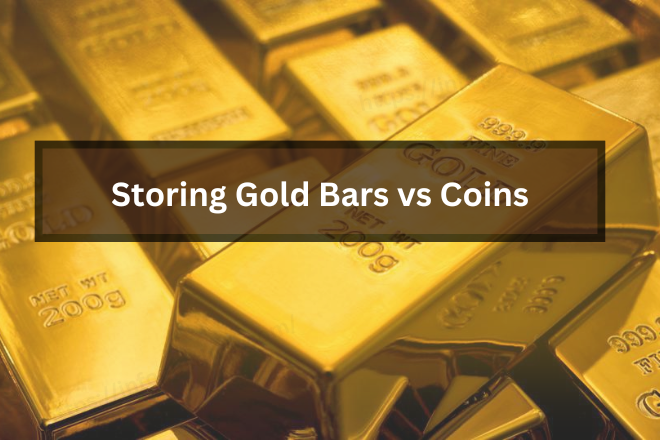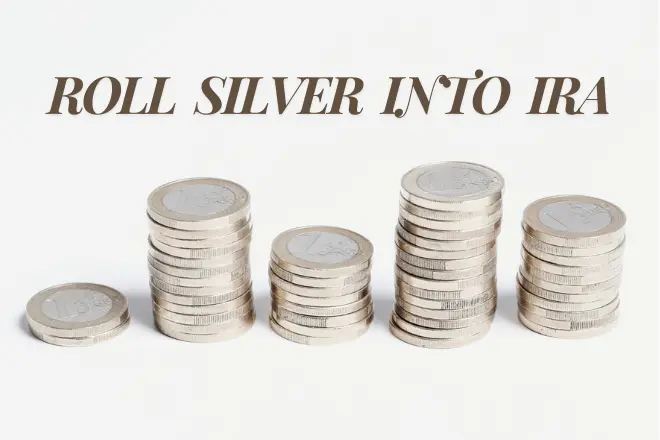How to Invest in Bullion, Everything You Need to Know

Investing in bullion can be a smart move for those looking to diversify their portfolios and secure their wealth against economic uncertainties. Bullion, typically in the form of gold and silver bars or coins, has been a reliable store of value for centuries. This article will guide you through everything you need to know about investing in bullion, from the basics to practical advice, and answer some frequently asked questions.
Why Invest in Bullion?
Bullion offers several benefits that make it an attractive investment:
- Hedge Against Inflation: Bullion often retains its value or even appreciates when the cost of living rises, making it a good hedge against inflation.
- Diversification: Adding bullion to your investment portfolio helps spread risk across different asset types.
- Tangible Asset: Unlike stocks or bonds, bullion is a physical asset that you can hold and store.
- Global Recognition: Bullion, especially gold and silver, is recognized and valued worldwide.
Types of Bullion
There are primarily two types of bullion you can invest in, gold and silver. Each has its own set of characteristics and benefits.
Gold Bullion
Gold is the most popular type of bullion for investment. It is available in bars and coins of various sizes and weights.
- Pros:
- High Liquidity: Gold can easily be bought and sold anywhere in the world.
- Store of Value: Gold has been used as a store of value for thousands of years.
- Durable: Gold does not tarnish or corrode, making it ideal for long-term storage.
- Cons:
- High Cost: Gold is more expensive than silver, which might be a barrier for some investors.
- No Regular Income: Gold does not generate dividends or interest.
Silver Bullion
Silver is another popular option for bullion investment. It is generally more affordable than gold and also available in bars and coins.
- Pros:
- Affordable: Silver is less expensive than gold, making it accessible to more investors.
- Industrial Demand: Silver is used in various industries, which can drive demand.
- Cons:
- Bulkier: You need more storage space for silver than gold for the same value.
- Volatile Prices: Silver prices can be more volatile due to industrial demand fluctuations.
How to Buy Bullion
Here are the steps to follow when buying bullion:
- Research: Before making any purchase, educate yourself about the types of bullion, market trends, and reputable dealers.
- Choose a Dealer: Select a reputable bullion dealer. Look for dealers with good reviews and transparent pricing.
- Decide on Bars or Coins: Decide whether you want to invest in bars or coins. Bars usually have lower premiums, but coins can be easier to sell and trade.
- Check for Purity: Ensure that the bullion you are buying is of high purity. For gold, this means 24 karats or .999 fine gold. For silver, look for .999 fine silver.
- Make the Purchase: Place your order with the dealer. You can often do this online, over the phone, or in person.
- Arrange Storage: Once you have your bullion, decide on a safe storage option. This could be a home safe, a bank safe deposit box, or a professional storage facility.
Storing Your Bullion
Proper storage is crucial to keep your bullion safe:
- Home Safe: A good option if you want quick access to your bullion. Ensure the safe is fireproof and secure.
- Bank Safe Deposit Box: Offers high security, but you won’t have immediate access to your bullion.
- Professional Storage: Some dealers offer storage services. These facilities are often highly secure and insured.
Selling Your Bullion
When you decide to sell your bullion, follow these steps:
- Check Market Prices: Monitor current market prices to sell at an optimal time.
- Find a Buyer: You can sell to a dealer, through an online marketplace, or at auctions.
- Verify Purity and Weight: Ensure your bullion is in good condition and its purity and weight are verified.
- Complete the Sale: Negotiate a fair price and complete the transaction securely.
FAQs
What is bullion?
Bullion refers to gold, silver, or other precious metals in the form of bars or coins, valued primarily by their weight and purity.
How is the value of bullion determined?
The value of bullion is determined by its weight, purity, and the current market price of the metal.
Is bullion a safe investment?
While no investment is entirely risk-free, bullion is considered a safer investment compared to stocks or bonds, especially during economic downturns.
How much should I invest in bullion?
It’s commonly recommended to allocate 5-10% of your investment portfolio to bullion. However, this can vary based on individual risk tolerance and investment goals.
Can I store bullion at home?
Yes, you can store bullion at home in a safe. Ensure the safe is secure and preferably fireproof. However, consider the risks of theft and damage.
What are the costs associated with buying bullion?
Costs can include the purchase price, dealer premiums, shipping fees, and storage costs. Always factor these into your investment decision.
How do I ensure the authenticity of bullion?
Buy from reputable dealers, check for certification, and look for purity markings on the bullion. You can also have it tested by a professional.
Summary Table
| Type Of Billions | Pros | Cons | Common Forms |
| Gold | High liquidity, store of value, durable | High cost, no regular income | Bars, coins |
| Silver | Affordable, industrial demand | Bulkier, volatile prices | Bars, coins |
Conclusion
Investing in bullion can be a smart way to protect your wealth and diversify your investment portfolio. Whether you choose gold or silver, understanding the basics, knowing how to buy and store it, and being aware of market trends are crucial steps to success. Always do thorough research, buy from reputable dealers, and consider your storage options carefully to ensure your investment is safe and profitable.
Bullion offers stability and a tangible asset that can help safeguard your financial future. With the right approach, it can be a valuable addition to your investment strategy.






